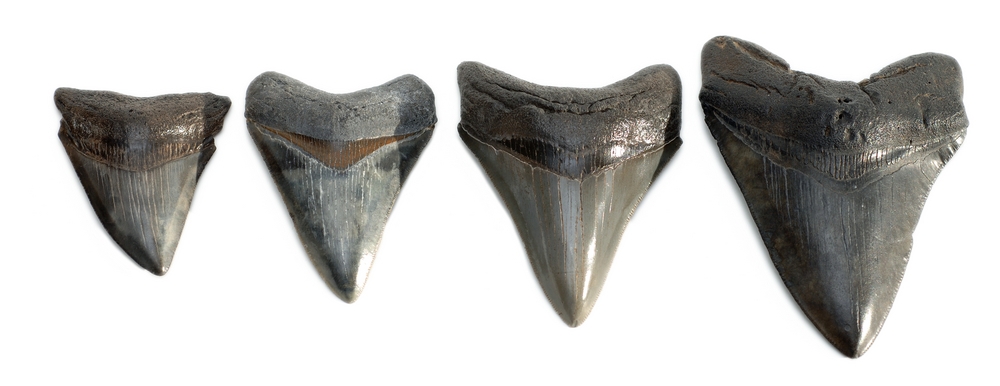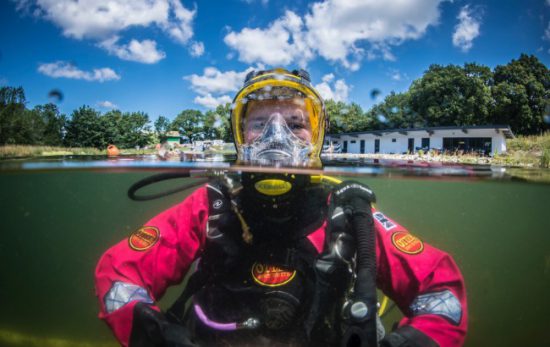Wetsuit worthy water temperatures, zero visibility, and a swift current are all parts of diving in the Cooper River, which is located in South Carolina, United States. Even though you’ll have to dodge mud balls and watch out for alligators, Steve Pittman says it’s his favorite place to dive.
Retired PADI Course Director, Pittman, has been to the Red Sea, Cocos Island, Panama, and other exotic dive destinations. So why is he obsessed with diving this muddy river? The Cooper River is a fossil bed for prehistoric ocean monsters.
A Rich History
Millions of years ago (1.5 to 28 to be exact), the South Carolina coast was underwater. The ocean went about 100 miles inland of today’s coast. Prehistoric marine animals like Megalodon sharks and whales left behind fossilized teeth and bones. Once the water retreated, the area became a prehistoric jungle and a final resting place for giant beavers, Saber-toothed tigers, and cave bears.
In more recent times, the rivers of this region were like highways. Artifacts from Native Americans and Colonial times can be found in Cooper River, too.
Like panning for gold, the Cooper River washes away mud and lets deposits of fossils settle on the bottom. For the diver who has “been there, done that,” this South Carolina Low-Country dive site has a never-ending supply of adventure.
Here are 3 things you need for a dive in the Cooper River:
- Experience
Since you’ll be diving in a current with low visibility, this dive site is best suited for advanced divers. Black-water divers are brave souls. If you happen to run into your buddy diving here, it would be by sheer luck.
- Special equipment
A wired-handled mesh bag that can be clipped to your gear and opened with one hand is an essential piece of equipment for diving in the Cooper River. You’ll need to use one hand to hold it and the other to gather fossils. Many divers stab the bottom of the river ice-pick-style with a screwdriver. Holding onto the screwdriver creates an anchor point that prevents them from being carried away by the current.
- A “Hobby Diver License”
South Carolina is the only state that allows collection of artifacts and fossils. This comes with the caveat. Scuba divers are required by law to get a Hobby Diver License in advance. It takes about four weeks to process the application. If you wish to dive in the Cooper River, it is your responsibility to know the limitations of this law. More information can be found here.
Are you up for the challenge? Find a PADI dive shop in South Carolina, and start planning your trip to Cooper River.
If you are not yet a PADI Diver, learn about getting scuba certified before planning your trip to South Carolina.



